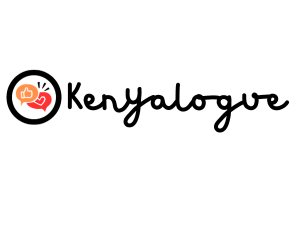In Africa, the word “power” means different things, including strength, influence, and authority. Each African culture and language has its own way of defining power, so different words are used to mean different kinds of power.
The different African words for power continue to interest curious individuals keen on understanding Africa, its vibrant culture, rich history, and many languages.
Here, you’ll find a collection of different African words that mean power.
Let’s dive right in…
1. Mamlaka
Mamlaka is a word referring to authority and dominion in the Swahili language. It is a common word in several Swahili-speaking nations in eastern Africa, including Kenya, Uganda, Burundi, Rwanda, and Tanzania.
Like most Swahili words, it comes from a mixture of Arabic and African languages. There are over 200 million Swahili speakers. Swahili is the national language in Kenya and Tanzania. Within the Swahili context, the word power refers to the authority vested in an institution.
2. Ashe
In Yoruba, Ashe means power. The term also refers to creative energy and vital force. Yoruba speakers usually use Ashe to refer to a person’s ability to influence reality through deeds and words.
The Yoruba language is prevalent among the Yoruba people. The language is primarily spoken in Central and Southwest Nigeria.
There are approximately 44 million Yoruba speakers in Nigeria. Another 2 million people speak Yoruba as their second language. Many migrant communities in Ivory Coast, the Gambia, and Sierra Leone also speak Yoruba.
3. Amandla
Amandla has different meanings and a rich history in the Nguni languages of South Africa, including Zulu, Swati, Xhosa Ndebele, and Hlubi.
Amandla means power, which became popular at the peak of anti-apartheid days in South Africa. Anti-apartheid crusaders used the term Amandla as a rallying call to signify the people’s power. Amandla also refers to collective strength.
There are over 40 million Nguni speakers in South Africa. Zimbabwe, Lesotho and Eswatini.
4. Bokilo
Bokilo is a Lingala word for power. The word also denotes various aspects of power, influence, and authority, although its meaning can change depending on the context.
Regarding authority, Bokilo means the power vested in an individual or institution to enforce rules and make decisions.
There are over 30 million Lingala speakers in the Democratic Republic of Congo. A significant population of Lingala speakers also inhabit other central African regions, including Congo Brazzaville.
5. Utongoria
Utongoria is a Kikuyu word for power. The Agikuyu people are natives of Kenya’s central region, mostly surrounding the arable farms around Mt. Kenya.
There are over 8 million Kikuyu speakers in Kenya. They use Utongoria to signify the power bestowed on a person to lead a community or nation.
6. Inkosi
Inkosi is a Zulu word that represents authority, the ability to govern, and leadership. It evokes immense respect and has enormous cultural significance in the Zulu. The Zulu population in South Africa is approximately 12 million.
7. Ekigunda
Ekigunda means power in Luganda. It can suit different contexts. For instance, Baganda people use this word to refer to political authority, physical strength, and magical ability. Ekigunda can also mean influence or dominance over someone or a community.
It has political significance among the Baganda ethnic group, Uganda’s largest Bantu ethnic group. There are approximately 5.5 million Baganda people in Uganda. There is also a sizeable population of Luganda speakers overseas.
8. Ubusungu
The word Ubusungu carries a strong connotation for power in the Nyamwezi language. It can also be used in several aspects of Nyamwezi’s social structure. It refers to undisputed political authority among leaders who command respect and govern the community. Ubusungu can also mean magical or mystical power bestowed on spiritual figures and healers.
Wanyamwezi, or simply Nyamwezi, is Tanzania’s second-largest tribe. Nyamwezi people inhabit large swatches of Tanzania’s western region. Nyamwezi’s population is close to 2 million.
9. Awood
Awood means power in the Somali language. The word denotes influence, political authority, financial resources, and physical strength.
Somali speakers are fascinating people native to Somalia, Djibouti, Kenya, and Ethiopia. There are approximately 20 million Somali speakers in Kenya, Somali, and Djibouti. There is also a significant population of Somalis in the diaspora.
10. Ulamu
Ulamu means power in Mijikenda, although the meaning can change depending on context. The word signifies authority and dominance.
The Mijikenda people inhabit Kenya’s coastal region and are known for maintaining traditional rituals and practices, such as ancestral veneration and rainmaking ceremonies.
11. Ekilongo
Ekilongo is a Makua word for power. It is used to refer to different forms of power, including political authority, influence, and physical strength.
Makua is Mozambique’s largest tribe inhabiting the country’s northern region. Makua speakers make up approximately 35% of the Mozambican population.
Wrap Up
Power holds significant importance in African culture, evident from the many words or terms used to define and describe it. This linguistic richness signifies the different ways Africans understood power.
Remember that the desire for power is why Africans fought for freedom from colonial rule. The fight was about wanting control over their own lives and governments.
Through this historical lens, therefore, the value of power goes beyond just words. It connects with the history of Africans standing up for their right to be in charge of their destinies.



